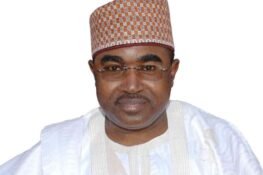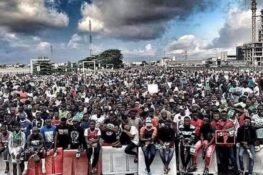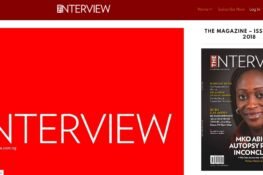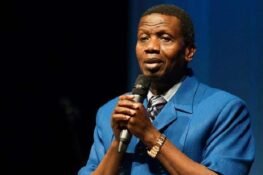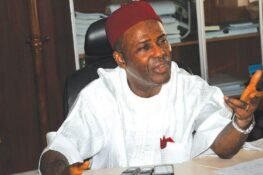There have been times when I asked myself how we ended up with President Muhammadu Buhari again.
Two years and half way into his first term, the charm that gave Buhari a historic victory over Goodluck Jonathan’s government appears to have faded, leading to troubling comparisons with that incompetent government.
Part of the problem has been inflated expectations, but who can deny that the disappointments and anguish have been real? An estimated 4.5million people have lost their jobs, inflation has been around 15 percent, with food and energy costs going up, up, up.
Monetary and fiscal policies have been haphazard and with the cat distracted by health concerns, the mice seem to be doing their own thing. To compound Buhari’s misery, falling oil prices and sponsored violence in the Niger Delta have severely limited the standard Nigerian response of throwing money at every problem.
Yet, the feeling of a bitter honeymoon hardly tells the whole story. The civil war within the ruling All Progressives Congress that has set the legislature against the executive; the government’s confused and tentative initial response to the deadly attacks by herdsmen; the shameful inter-agency feud instigated by the DSS; and the lack of transparency about billions of recovered funds in different currencies, have all created the impression of a rudderless government.
Are we judging Buhari harshly?
Two years ago, there were two major candidates. To paraphrase columnist, Sonala Olumhense, one had the record of incompetence, and the other the image of a tough, old soldier.
For nearly five years when the former was in charge, crude oil sold at an average of $120 per barrel. By official estimates, Nigeria earned N51trillion from crude oil sales in that time. But while the incompetent one was holding the hem of the skirt of the Petroleum Minister, most of the proceeds were diverted to private pockets.
Nigeria was losing $1billion monthly to oil theft, after paying $910million to crooks in the creeks to look after the pipelines.
In four years under the incompetent one, Shell, Total, Agip and ConocoPhillips sold off over 20 oil blocks worth over $11.5billion, after opaqueness reached new highs.
When President Obama said enough was enough, the incompetent one said Obama wanted him out over his opposition to gay rights. How?
Whether it was sweetheart oil swap deals running into billions of dollars, the purported repairs of refineries with $1.6billion which yielded less than 16 percent in local refining capacity, or massive payoffs in messy oil block deals, the incompetent one and the four female deities of the presidential godhead, among others, dealt Nigeria a bad hand.
It’s easy to forget that. It’s also easy to forget that Boko Haram had taken over parts of the country the size of Northern Ireland. The terror group had struck enough fear in the hearts of the incompetent one and his crowd to keep them behind huge stone boulders, wrought iron fences and the high walls of Aso Rock most of the time.
Billions of dollars of war budget were stolen. Our soldiers were left to fight Boko Haram with bare hands and forced to seek help from local hunters and succour from soldiers in neighbouring countries.
It was in the midst of the madness that 276 Chibok girls were abducted and 59 young schoolboys killed, some burnt alive in their dormitories in Bunu Yadi.
In the aftermath of the mayhem, we have over two million internally displaced persons in the country today, the highest in the world.
In response, the wife of the incompetent one staged a bizarre drama in the Presidential Villa, an act that at once summarised the severity of her husband’s incompetence and the danger of letting him continue for one more day after May 29, 2015.
That was how we settled for Buhari, the tough, old soldier.
He has disappointed some. By far the greater majority, however, are those who may have been disappointed by their own expectations.
Millions of Nigerians feel that the tough, old soldier they voted for two years ago has become soft, letting them down on jobs, the economy and charges of corruption involving a few of his close aides.
It would be dishonest to pretend that Buhari has reached the mark, but Nigeria is not in the hole it was when he took over.
He has retrieved the country from Boko Haram, as he promised and led the rescue of 103 Chibok girls. He has also made progress in the fight against corruption by putting soldiers and politicians on public trial. Soldiers were sacred cows.
It seems like many, many years ago when the incompetent one launched a national dictionary differentiating stealing from corruption and leadership from responsibility. We went that low.
Buhari has made effort to tackle impunity by personal example, although for reasons best known to him he seems determined to keep a few around him who have only given him a bad name.
Yet, we can’t pretend it’s all Buhari’s fault. There’s nothing about Buhari that was not there before 2015 or which the few who know him well did not mutter in small circles.
In our collective haste to remove the incompetent one – which we should have no regret about – we missed a vital point: Buhari’s rigid insularity and health status were always going to be limiting factors to his performance from day one.
With 81 out of his 726 days in office spent in and out of hospital, the second factor appears to have overridden the first. I suspect that things might have been remarkably different, if Buhari had enjoyed robust health in the last two years.
But it’s what it is and we must deal with it. We must continue to insist on regular, reasonable disclosure of his health status instead of the current blackout.
The nonsense about acting or coordinating president must stop in favour of a common sense interpretation of the constitution that frees the government, especially the Vice President, from the current spell of subdued activity.
The civil service remains a drag, a big one, poised to swallow up alive the campaign on the ease of doing business. Acting President Yemi Osinbajo would soon find that preaching about the ease of doing business does not translate to the ease of doing business. He’ll have to draw blood to bring change.
The campaign to diversify the economy has to be more than a campaign mounted only when crude oil prices are falling. We need clear milestones, incentives and coherent long-term policies to make it work.
And corruption will fight back not because we say so, but because its temples in our homes, communities and workplaces are still sacred and thriving platforms.
Of course politicians, especially, will go the extra mile to suggest that the last two years have been a waste, with the government going round and round in circles and settling old scores. That’s politics.
We must demand more of this government to secure our future. But let’s not forget where we’re coming from.
For five years the incompetent one was not even going round, never mind going round in circles. He was sliding dangerously backwards, aiding and abetting appointees and cronies who used the public treasury to settle themselves and to settle scores, daring the rest of us to do our worst.
Freedom from that malady is vital and refreshing; but after two years, it is insufficient condition for lasting progress.
Ishiekwene is MD/Editor-In-Chief of The Interview magazine and board member of the Paris-based Global Editors Network

